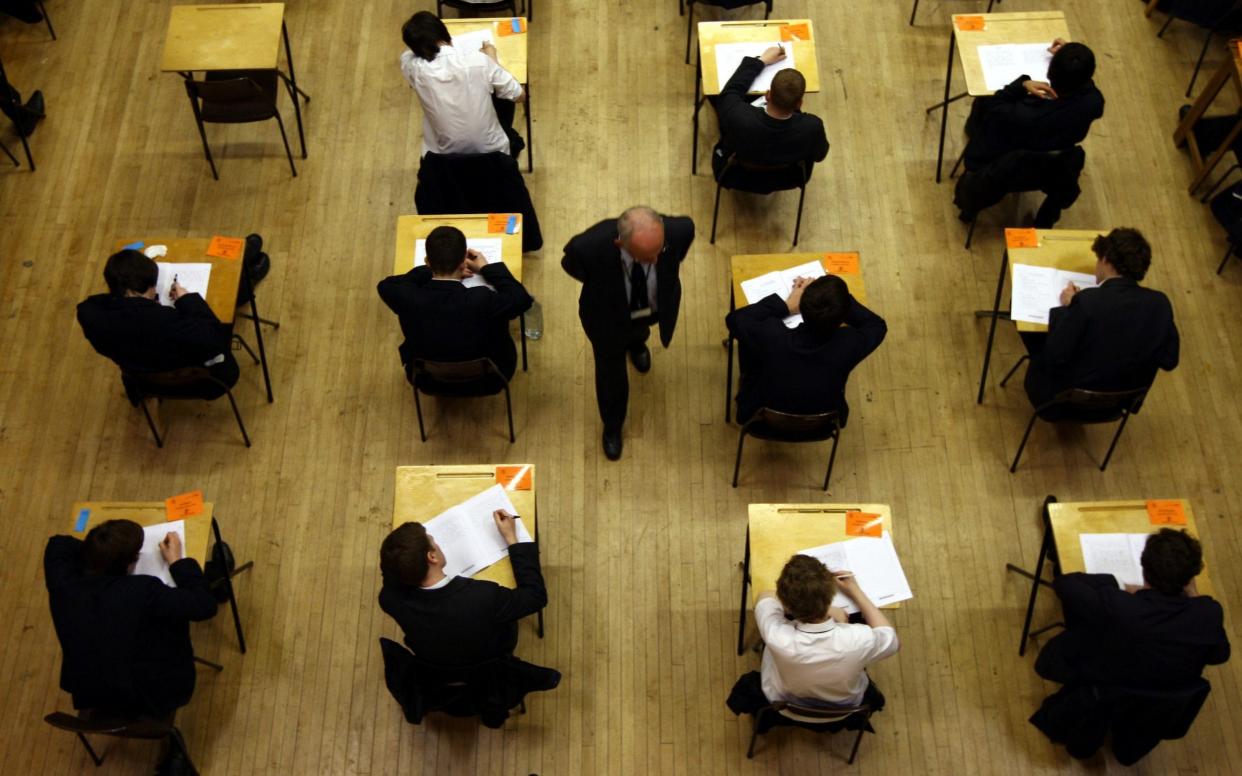Let pupils take GCSEs over four years not two, says education tsar

Some teenagers should be allowed to take GCSEs over four years rather than two, the catch-up tsar has said.
There should be a debate about the future of GCSEs including whether all pupils are suited to taking them at the end of Year 11, according to Sir Kevan Collins.
Addressing Parliament’s Youth Unemployment Committee, he said: “I think there is a big discussion for us to have, particularly around GCSEs at 16.
“This is because for many young people that is a very important marker and it works very well if you are then going to choose your A-levels.”
Sir Kevan, who was appointed earlier this year by the Prime Minister as the Government’s education recovery commissioner, explained that a major problem with GCSEs was that “too many” youngsters repeatedly failed their English and maths exams.
A grade 4 in English or maths - equivalent to a grade C under the old system - is often the minimum requirement for an apprenticeship, job or place at a sixth-form college. Students who fail to achieve it are asked to repeat the course and take the exams again the following year.
“In the second chance, the vast majority don’t pass again so we have this issue where we ask you to do something, you fail, you do it again and you fail – there has got to be a better way of doing that,” Sir Kevan said.
“Perhaps for some young people we could give them four years to take that exam rather than two years and fail, two years and fail.”
The future of assessments is online
Sir Kevan also told the committee of his enthusiasm for online working, especially for A-levels.
“I think we need to move more quickly to assessment online because I think that is the future,” he said.
“That opens up the opportunity, particularly in A-levels, to make sure that people get their grades before they get their offers at university, which I think is another conversation we should be having.”
Asked about what positive things could be learned from the pandemic, Sir Kevan said that schools had made a “huge leap forward” when it came to incorporating technology into education. He said that conducting parents’ evenings online is “much better than trying to find a car parking space on a wet Tuesday and waiting your turn”.
Sir Kevan was asked in February to head up a team of experts who will draw up proposals on how to address the amount of learning children have missed out on during the pandemic.
He is the former chief executive of the education endowment fund, a Government-backed charity which carries out education research.
Ministers have previously announced that summer schools, a “Covid premium”, and an extra £300 million for a tutoring programme will form part of a new package of “catch-up” measures.
Boris Johnson has previously said he is aware that the second prolonged period of school closures will have a “huge impact on children's learning, which will take more than a year to make up”.

